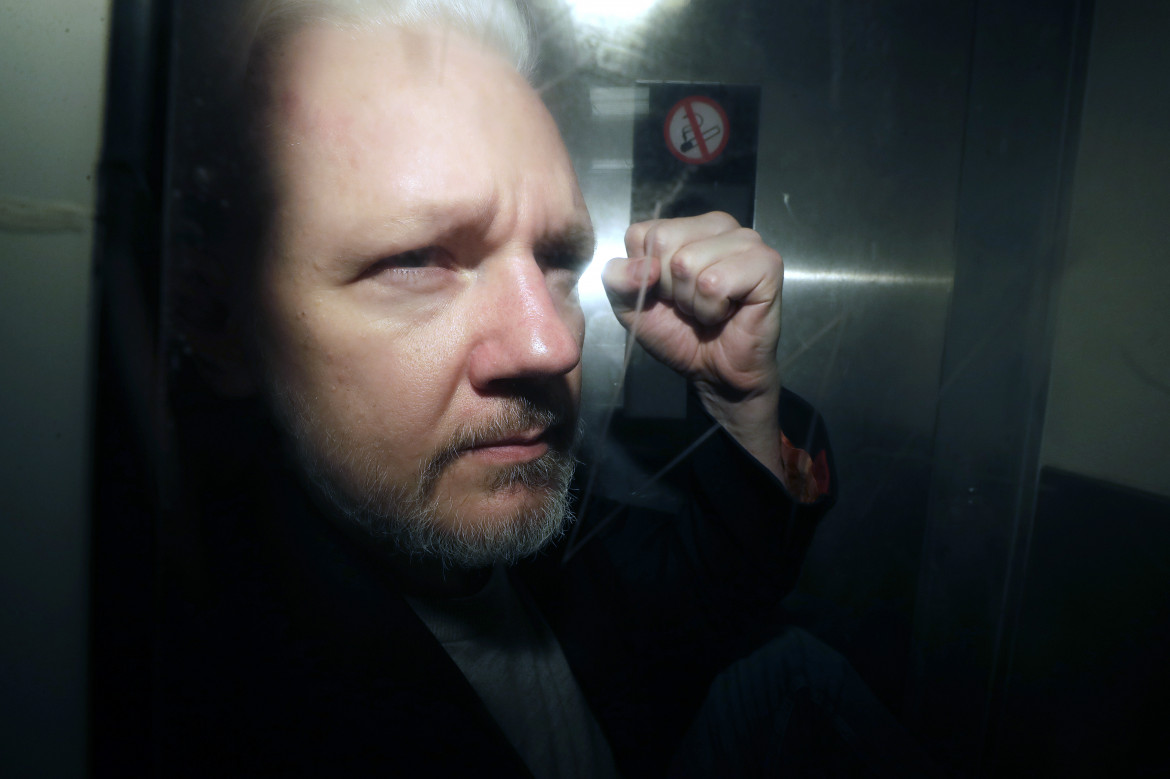Commentary
Julian Assange and the countervailing power of public opinion
Apart from the global (and Italian) associations and the clever work of his legal team, the liberation of the WikiLeaks founder also owes thanks to grassroots mobilizations.

In the early hours of Monday night, there was a collective sigh of relief. At 1:44 a.m., the much-awaited news came: Assange was free. The U.K. High Court still needs to make a final ruling on July 9 and 10, but in the meantime, Assange was finally allowed to leave Belmarsh Special Prison (which has been called the British Guantanamo).
His defense managed to get the U.S. Justice Department to agree to a plea deal on the first count he has been accused of, namely conspiracy to obtain classified information under the Espionage Act of 1917. The sentence he will receive is set to be covered by the time he has already served. We should not forget that the Australian journalist has been relentlessly hounded since 2010 and forced to stay in hiding under conditions amounting to no less than torture since 2009.
One must commend the legal team protecting the journalist who had become public enemy number one for the intelligence services across the Atlantic, which enlisted the help of Sweden, Ecuador from a certain point, and the U.K., in lockstep with the U.S. as usual, to hunt him down. The truth is that in the U.S., the prosecution process is taken to the extremes: either you agree to a plea deal or you get crushed. There is no other option.
Real trials are not like those depicted in Hollywood in trendy legal thrillers starring the likes of Harrison Ford or Al Pacino. Either you are very rich and can afford to post a multi-million-dollar bail, or you settle. Otherwise, there is only the scenario reserved for the have-nots: they lock them in a cell in unlivable conditions and throw away the key.
In the end, Stella Moris, Assange’s wife and a lawyer herself, and the bevy of legal specialists on his team, including the renowned Balthasar Garzon (from Spain’s Clean Hands anti-corruption organization), working on a case that is set to make history, succeeded in persuading the U.S. prosecutors to reduce the 18 charges leveled against the WikiLeaks founder down to one.
This result goes beyond expectations, certainly thanks to the contribution of the excellent legal staff. However, it would not have been possible without the relentless activity of NGOs, FreeAssange committees, movements, as well as labor organizations, including the Italian National Order of Journalists. The latter helped by paving the way to multiple professional awards for the work of someone who had been relegated by misinformed public opinion to the vilified category of “pirates.”
The truth is Assange is a journalist who deserves awards, not obsessive persecution. If publishing news that is a matter of public interest, such as accounts of wars and crimes connected with them, is not considered “real journalism,” his detractors are free to devote themselves entirely to gossip columns.
The attack on WikiLeaks was a dress rehearsal for the offensive against the autonomous and independent journalistic sphere founded on the right to report. It all becomes crystal clear if one reads the angry statements attacking the plea deal from Mike Pence, Donald Trump’s former VP. Of course, we should be wary of indulging in tenuous triumphalism. Tomorrow is another day, and we’ll have to deal with it as it comes.
In Italy, notable efforts to contribute to this result included initiatives by NGOs such as Articolo21, ReteNoBavaglio, Amnesty International, the various FreeAssange Committees and the many videos of women artists coordinated by the “My Voice for Assange” campaign; as well as cultural personalities such as Laura Morante, and Davide Dormino with his traveling sculpture entitled Anything to say?
The impetus behind these initiatives came from the indefatigable research and in-depth work of the journalist and writer Stefania Maurizi and from the first appeal launched by the 1980 Nobel Peace Prize winner Pérez Esquivel, an Argentine persecuted by the military junta, in which he stressed the great countervailing power of public opinion – rightly, it turns out.
Originally published at https://ilmanifesto.it/julian-assange-e-il-contropotere-dellopinione-pubblica on 2024-06-26
